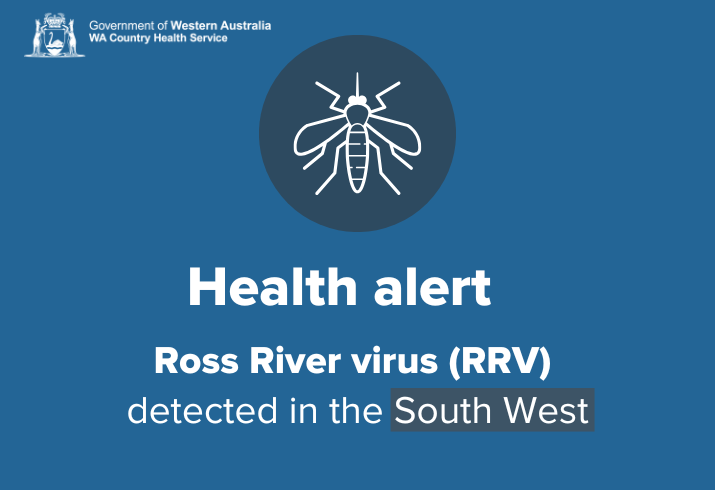First Ross River virus detection in South West region in over a year

The following media release has been issued by the Department of Health.
WA Health is encouraging community members and visitors to the South West to take steps to prevent mosquito bites, following the first detection of Ross River virus (RRV) in the region in more than a year. The virus was recently detected in mosquitoes as part of the Department of Health mosquito surveillance program. WA Department of Health Managing Scientist, Dr Andrew Jardine, said mosquito surveillance was used as an early warning system so community alerts can be issued when mosquito-borne viruses are active in the environment. “Ross River virus is the most common mosquito-borne virus in WA and symptoms can be debilitating.” Dr Jardine said. “Check if your home is mosquito-proof and make sure you have appropriate clothing and effective repellent, to keep you and your family safe.” Symptoms of RRV infection include painful or swollen joints, sore muscles, skin rashes, fever, fatigue and headaches, lasting for weeks to months. The only way to diagnose whether you have a mosquito-borne disease is to visit your GP and have a specific blood test. There is no vaccine, cure or specific treatment for RRV, so it is important that people take care to prevent being bitten by mosquitoes. Advice about mosquito avoidance is available via HealthyWA, and includes: Cover up: Repel: Clean up: For more information, including further RRV symptoms and mosquito prevention tips, visit HealthyWA.

